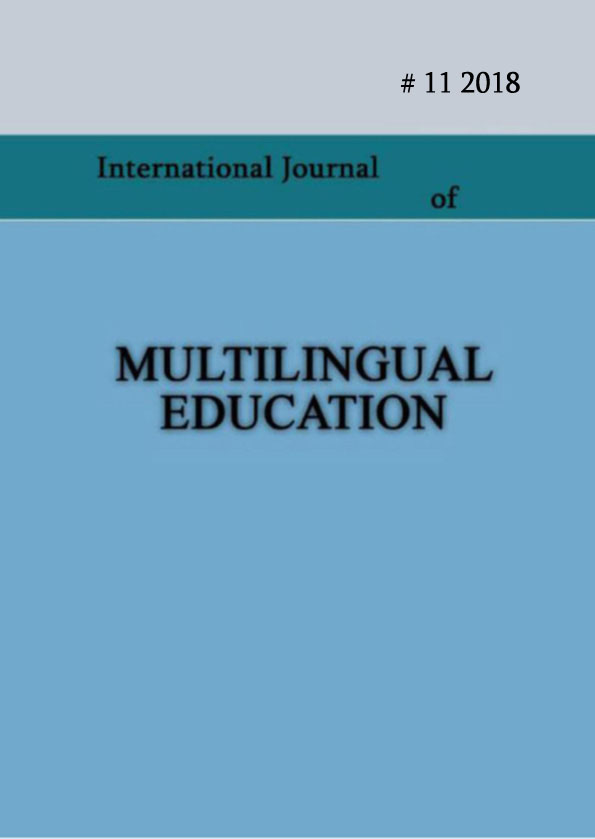Methods and Strategies for Studying Georgian as a Foreign Language by the First Europeans
Keywords:
missionaries, vocabulary, grammar, studyAbstract
The tradition of Georgian as a foreign language study has rather deep historical roots; it begins from the 17th century and is connected to the activities of the European missionaries in Georgia. Almost two-centuries of practice of the Georgian language study have been described by the French and Italian missionaries in their own vocabularies and grammars. The missionaries’ activities and their vocabularies and grammars were assessed and analyzed from different standpoints, however, taking into account the modern methodology, empiric surveillance of Georgian as a foreign language study, their individual experiences and approaches have not still been considered. From the missionaries’ materials we see that when studying the Georgian language they actively used the vocabularies, recorded the words frequently used in the local environment, and in brief grammars they mainly described the grammar categories necessary for the communication. We reckon, such practice of the language study is actual and valuable even today for those studying languages as well as for those practicing didactics, Georgian is thought to be the language having complicated morphological-syntactical systems.
For our research we have chosen Georgian-Italian and Italian-Georgian vocabularies of the 19th century (1852 - 1867). The vocabulary is kept in Rome - ORDO FF. MIN. CAPUCCINORUM Archives and its author is Emanuele Iglesias. Our aim is to establish the historical experience the missionaries had in the foreign language study practice, taking into consideration certain vocabulary, and how actual could be at the modern stage the foreign language study practice and strategy as described by the missionary authors. Analyses of the mentioned vocabulary give us the possibility to try to announce the standard description of the lexical part of the language knowledge levels, in particular, distinguish themes of language entities and separate the terms concerning treatment, medicines, and religion. Moreover, we have analyzed the grammatical part from the functional grammar standpoint. The research results show us, that Georgian as a foreign language, described in the vocabularies and grammars, was helping the missionaries to adapt to the linguistic and social environment.
References
Babunashvili and Uturgaidze, 1991 - Babunashvili, E. and Uturgaidze, T. (1991). Anton the First’s Georgian Grammar and its National and Historical Importance, Tbilisi Georgian Scientific Academy.
Chichinadze, 1896 - Chichinadze, Z. (1896) Patrick Nicola as a Doctor and Georgian Catholic in his Time in Tbilisi. Kheladze printing house.
Doborjginidze, 2010 - Doborjginidze, N. (2010): Linguistic - Hermeneutic Metatexts,Tbilisi, Ilia University
Publishing.
Doborjginidze, 2012 - Doborjginidze, N. (2012) On Some Implications of Ilia Chavchavadze's Barakala, in
Kadmos 4, Tbilisi 73-115.
Italian dictionary, 2015 - Georgian and Georgian - Italian dictionary, is preserved in the Capuccinorum archive in Rome ORDO FF. MIN. CAPUCCINORUM. https://www.wdl.org/en/item/321/
Kiguradze, Kutateladze , 2013 - Kiguradze, T. and Kutateladze, E. (2013) Rise: Methodology of studing Georgian as a foreign Language http://www.geofl.ge/img/metodik/bfull.pdf.
Levels of Georgian as a foreign Language description, 2018 - Levels of Georgian as a foreign Language description: Level A1 http://www.geofl.ge/img/doneebi/a1.pdf.
Luisseli, 2000 - Luisseli, B. (2000) Inkulturativer und akkulturativer Prozeß der Christianisierung: DieEntstehung der nationalen Literaturen und der Latein sprechenden Eliten inWesteuropa, U.-Chr. Sander – F. Paul (eds.), Muster und Funktionen kulturellerSelbst- und Fremdwahrnehmung. Beiträge zur internationalen Geschichte dersprachlichen und literarischen Emanzipation, Göttingen.
Nida, 1975 - Nida, A. E. (1975) Language Structure and Transaltion, Stanford University Press.
Oeldemann, 2006 - Oeldemann, J.(2006) Die Kirchen des christlichen Ostens. Orthodoxe, orientalische und mit Rom unierte Ostkirchen (= Topos-plus-Taschenbücher, Positionen). Topos plus, Kevelaer.
Papashvili, 1995 - Papashvili, M. (1995) Georgian - Roman Relations in the 6th - 20th Century, Tbilisi, Agmashenebeli Publishing.
Uturgaidze, 1990 - Uturgaidze, T. (1990) The Learning of the Georgian Language by the Missionaries and their Scholarly Opinion. Iberian-Caucasian Linguistics, #XXIX, Tbilisi, 123 - 147 (in Georgian).
Published
How to Cite
Issue
Section
License
Copyright (c) 2018 Ana Chkuaseli

This work is licensed under a Creative Commons Attribution-NonCommercial 4.0 International License.
Copyright (c) - Authors who publish with this journal agree to the following terms: Authors retain copyright and grant the journal the right of first publication with the work simultaneously licensed under a Creative Commons Attribution-Noncommercial 4.0 International License, which allows others to share the work with an acknowledgement of the work's authorship and initial publication in this journal. Authors are permitted and encouraged to post their work online (e.g., in institutional repositories or on their personal website) prior to and during the submission process, as it can lead to productive exchanges, as well as earlier and greater citation of published work (see The Effect of Open Access). Authors may enter into separate, additional contractual arrangements for the non-exclusive distribution of the journal's published version of the work (e.g., post it to a repository or publish it in a book), with an acknowledgement of its initial publication in this journal.

